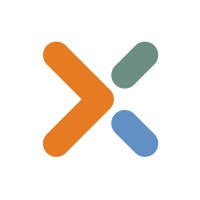Description
Responsibilities:
Business Understanding and Impact
- Understands problems facing projects and is able to leverage knowledge of data science to be able to uncover important factors that can influence outcomes on specific products.
Data Preparation and Understanding
- Acquires data necessary for successful completion of the project plan. Proactively detects changes and communicates to senior leads. Develops useable data sets for modeling purposes. Contributes to ethics and privacy policies related to collecting and preparing data by providing updates and suggestions around internal best practices. Contributes to data integrity/cleanliness conversations with customers.
Modeling and Statistical Analysis
- Leverages knowledge of machine learning solutions (e.g., classification, regression, clustering, forecasting, NLP, image recognition, etc.) and individual algorithms (e.g., linear and logistic regression, k-means, gradient boosting, autoregressive integrated moving average [ARIMA], recurrent neutral networks [RNN], long short-term memory [LSTM] networks) to identify the best approach to complete objectives.
- Understands modeling techniques (e.g., dimensionality reduction, cross-validation, regularization, encoding, assembling, activation functions) and selects the correct approach to prepare data, train and optimize the model, and evaluate the output for statistical and business significance. Understands the risks of data leakage, the bias/variance tradeoff, methodological limitations, etc.
- Writes all necessary scripts in the appropriate language: T-SQL, U-SQL, KQL, Python, R, etc. Constructs hypotheses, designs controlled experiments, analyzes results using statistical tests, and communicates findings to business stakeholders.
- Effectively communicates with diverse audiences on data quality issues and initiatives. Understands operational considerations of model deployment, such as performance, scalability, monitoring, maintenance, integration into engineering production system, stability.
- Develops operational models that run at scale. Develops a strong understanding of the Microsoft toolset in artificial intelligence (AI) and machine learning (ML) (e.g., Azure Machine Learning, Azure Cognitive Services, Azure Databricks, Synapse). Breaks down complex statistics and machine learning topics into manageable topics to explain to customers.
- Helps the Solution Architect and provides guidance on model operationalization that is built into the project approach using existing technologies, products and solutions, as well as established patterns and practices.
Evaluation
- Understands relationship between selected models and business objectives. Ensures clear linkage between selected models and desired business objectives. Assesses the degree to which models meet business objectives. Defines and designs feedback and evaluation methods. Presents results and findings to senior customer stakeholders.
Industry and Research Knowledge/Opportunity Identification
- Leverages capabilities within existing systems. Shares knowledge of the industry through conferences, white papers, blog posts, etc. Researches and maintains deep knowledge of industry trends, technologies, and contributes to the body of thought leadership and intellectual property (IP) best practices.
Coding and Debugging
- Writes efficient, readable, extensible code from scratch that spans multiple features/solutions. Develops technical expertise in proper modeling, coding, and/or debugging techniques such as locating, isolating, and resolving errors and/or defects.
- Understands the causes of common defects and uses best practices in preventing them from occurring.
- Collaborates with other teams and leverages best practices from those teams into work of their own team.
- Builds professional-grade documents for knowledge transfer and deployment of predictive analytic models.
- Leverages technical proficiency of big-data software engineering concepts, such as Hadoop Ecosystem, Apache Spark, continuous integration and continuous delivery (CI/CD), AzDo, Docker, Delta Lake, MLflow, AML, and representational state transfer (REST) application programming interface (API) consumption/development.
Requirements:
1) 3-5 years software design experience
2) Agile Development Processes / Azure Dev Ops
3) Knowledge of MSFT Azure Cloud Services
4) C, C++, C#, Java, JavaScript, or Python
5) GitHub experience (preferred)
6) SAR (preferred)
7) Coding experience with AI & ML (Preferred)
8) Worked with Government Procurement, Anti-Money Laundering, Investigations (Preferred)
If this is a role that interests you and you’d like to learn more, click apply now and a recruiter will be in touch with you to discuss this great opportunity. We look forward to speaking with you!
Key Skills
Education
Any Graduate
- Posted On: 09-Dec-2024
- Experience: 3+ years of experience
- Availability: Remote
- Openings: 1
- Category: Software Design Engineer
- Tenure: Flexible Position

